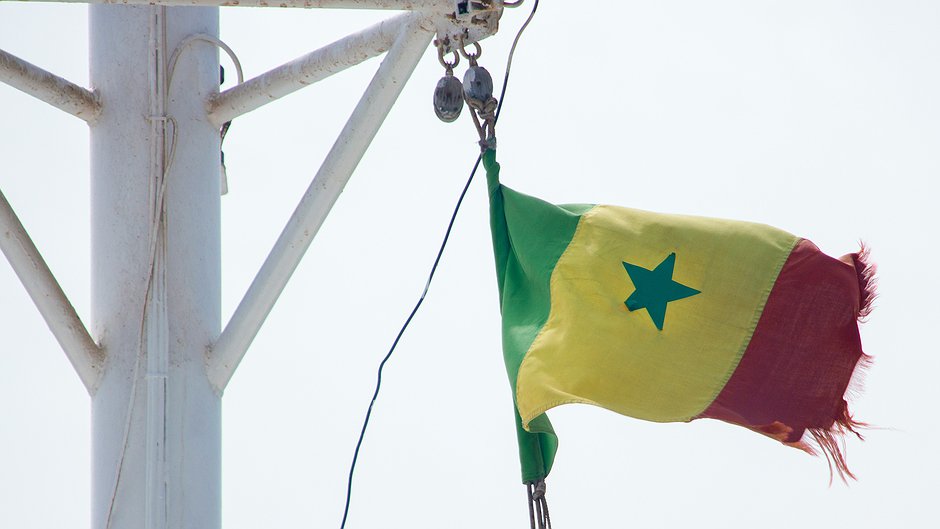
Investing in the Fight Against Digital Authoritarianism in Senegal
On February 3, Senegal’s President Macky Sall announced a delay of the much-anticipated presidential elections, originally planned for February 25, in what some are calling a “constitutional coup.” Protests erupted, and the government imposed a mobile internet shutdown. As demonstrations continue through this week, the government has banned protests and continued to cut access to mobile internet services. This is not the first major shutdown in Senegal- last year, following protests around the arrest of the major opposition leader, Ousmane Sonko, the government blocked mobile network traffic and social media for a week in June, and then sporadically in July of 2023.
While Senegal has often been cited as one of the strongest democracies in Africa, digital rights activists in Senegal have been saying for several years that the writing has been on the wall, democracy in Senegal is threatened, and there is an urgent need to support civil society to defend democracy and better prepare for and advocate against internet shutdowns. For the past two years, Senegalese organizations have been working with Advocacy Assembly, Internews’ OPTIMA project, Access Now, Media Defense, and other organizations to organize and to be ready to fight back at precisely this moment.
In 2022, the Senegalese digital rights groups Jonction and Computech Institute, in partnership with the Internews OPTIMA project, conducted a needs assessment to determine how Senegalese civil society understood the threat of internet shutdowns and their level of preparedness. At the time, there had only been one short shutdown in March of 2021 that lasted for only a few hours in the early morning. With little evidence collected on the shutdown and minimal reporting on the event, civil society did not fully grasp the implications of such government action. In the 2022 Assessment, a majority of the respondents (64%) reported that an internet shutdown was very unlikely in 2023. Additionally, 90% of respondents reported that they did not understand how an internet shutdown could happen technically or legally and 77% reported that they did not have a plan or contingency measures in place should an internet shutdown occur. However, digital rights groups such as Jonction knew another internet shutdown was not just possible, but likely as politics in the country became increasingly turbulent.
Responding to these needs, Jonction built the Prepare and Prevent Network in Senegal. The P&P Network, along with Computech Institute, OONI, and Internews’ OPTIMA project organized a fellowship program to train civil society to measure internet censorship. The two local organizations Jonction and Computech Institute also designed an ‘internet roadshow’ campaign, collaborating with a street theatre troupe to distribute information about VPNs and circumventing internet shutdowns in ten districts in Dakar. When the internet shutdowns occurred in June 2023, this network was prepared to respond, with researchers distributed throughout the country collecting network data and collaborating.
Jonction also convened a network of lawyers and commissioned research from a legal researcher, Astou Diouf, to conduct research on various laws in Senegal and legal analysis around shutdowns. With the support of the Advocacy Assembly, Astou participated in a 7-week internet shutdown advocacy training program and connected with legal experts who have filed legal petitions against internet shutdowns in Togo, Nigeria, and Zimbabwe. She received support to use her legal research to convene experts to determine a legal strategy focused on fighting internet shutdowns within the context of Senegalese law. With the recent postponement of the election and the resulting protests and internet shutdowns, this legal network has been mobilized.
Astou has published her report here. Senegalese human rights group AfricTivistes, and journalists Ayoba Faye and Moussa Ngom, supported by the organization Media Defense, have filed a case in the Economic Community of West African States (ECOWAS) court of justice challenging the 2023 shutdowns.
The postponement of elections, protests and shutdowns show Senegal's democracy is under threat. Continued support is vital to enable civil society to protect human rights both online and offline. Senegal's activists have worked hard to prepare for this moment. Now is the time to stand with them.
Related courses

90 mins
 School of Data
School of Data
90 mins
 School of Data
School of Data Rory Peck Trust
Rory Peck Trust
50 mins
 Rory Peck Trust
Rory Peck Trust
Blogs

6 useful resources for journalists covering Covid-19
With a global pandemic spreading throughout the world, journalists are under increasing pressure to report accurate and relevant news for the masses. Often when covering a crisis, those on the reporting frontlines compromise their physical safety and mental health. To show some solidarity, the Advocacy Assembly team curated a list of useful resources from other organisations leading the way on this.

5 ways to find data for your next story
Data journalism is fast becoming a big trend in newsrooms across the globe. However, data isn’t always so easy to find. Here are five ways to get data for your next article.



